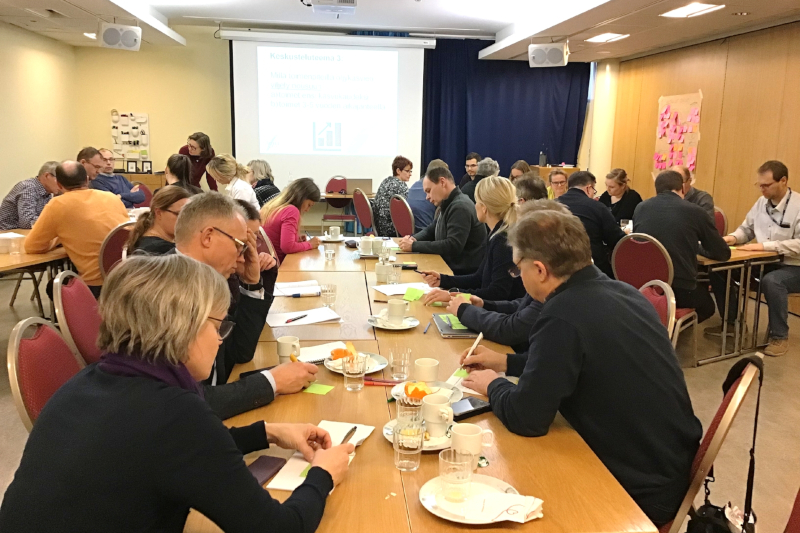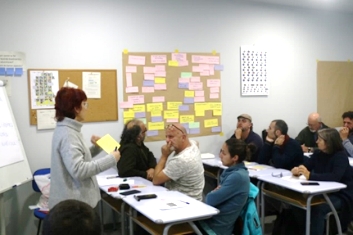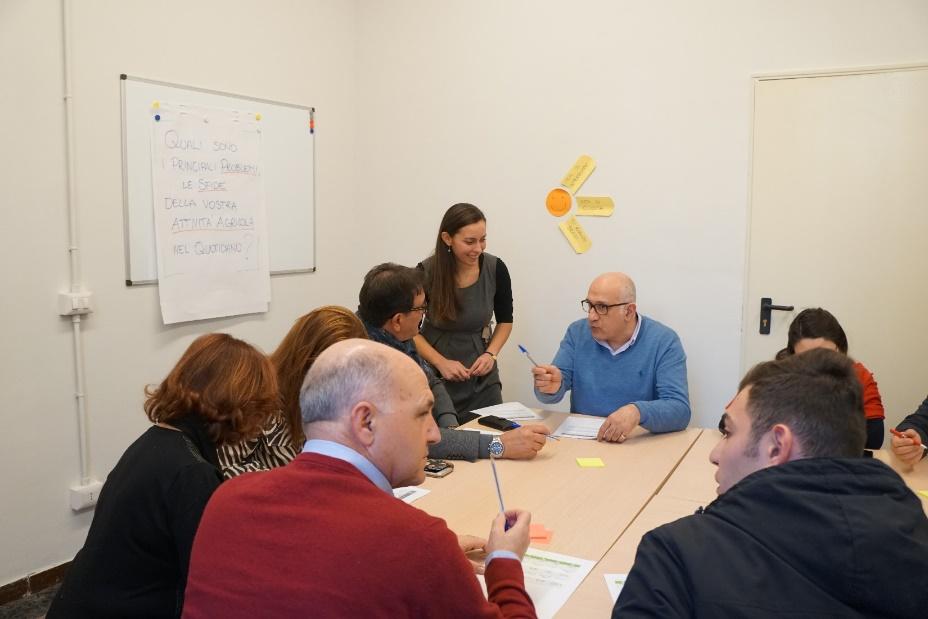Stacking of ecosystem services: mechanisms and interactions for optimal crop protection, pollination enhancement and productivity
Actor groups and actor interactions for co-designed practices and innovation
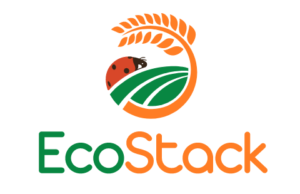

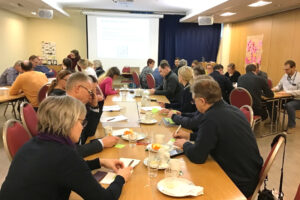
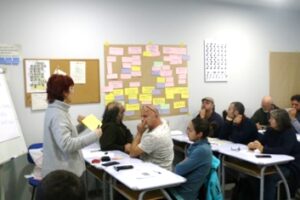
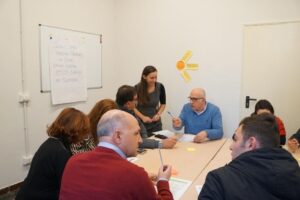
Agriculture has to face the great challenge of balancing the demand for high productivity, imposed by the global increase of human population, with environmental impacts and social acceptability of new production strategies. EcoStack will develop ecologically, economically and socially sustainable crop production strategies via stacking of biodiversity service providers and bio-inspired tools for crop protection, within and around agricultural fields, in order to enhance sustainability of food production systems across Europe.
To do so the project mobilized actor groups and actor interactions to co-design practices and innovation. We established a multi-level actor groups and farm networks for European pedo-climatic and socio-economic conditions as the basis for an adaptive co-management approach to support agricultural production using functional biodiversity.
Our experimental approach
In this project we:
- engage with different actors (including farmers, agrochemical companies and policy-makers) spanning different farming sectors/systems and at different levels (local to international) to guide development of new systems, concepts and policy instruments for maximising benefits from Ecosystem Service Providers,
- create a common knowledge bank enabling multi-directional exchange and generation of knowledge, ideas and innovative solutions regarding pest management and pollination among actors, and
- establish an adaptive co-management iterative cycle as the basis for future innovation and testing beyond the life of this project.
We wanted to know what farmers are currently doing in terms of environmentally friendly practices, what can be developed more… They are the professionals on the field so they know how to do. We have the scientific ideas but everything is context specific so in each farm it can be a bit different… Therefore, the horizontal farmer to farmer knowledge exchange and transfer is also a very important part of the project.
Key results
Across Europe workshops with stakeholders at midterm of the project and the results and feedback workshops with actor groups in different countries of Ecostack partners were carried out toward the last two years of the project. The latter were presenting key results from different work packages, and received feedback and reactions from farmers and farm advisors of the different actor groups. Moreover, participants provide insights about their use of a combination of different agroecological and Ecostack practices related to sustainable crop protection and pollination, and thus for the stacking of measures or practices on farms. Participants actively commented on the presented results, indicating which Ecostack practices they currently use and which they would be interested in using in the future. In addition, they discussed and identified the constraints, and finally suggested which practices they considered could best be stacked (combined on their farms).
An important work of the project was to capitalise on knowledge created during the EcoStack project, and make this professionals-oriented information readily accessible to different professional stakeholders. This includes user manuals for practitioners (in nine different languages), best practices fact sheets (in nine different languages), and newsletters. All these materials and others such as videos, newsletters, presentations, selected scientific articles, and policy options are now available in the Knowledge Bank under the EcoStack website.
CLAS Project team
Alexander Wezel, Aurélie Ferrer, Anthony Roume (Agroecology and Environment research unit), Jacques-Aristide Perrin (Laboratory of Rural Studies research unit).
Research partners
- Aarhus University, Denmark
- University of Naples Federico II, Italy
- University of Coimbra, Portugal
- Rothamsted Research, Hertfordshire, UK
- University of Banja Luka, Bosnia and Herzegovina
- University of Agriculture Sciences, Uppsala, Sweden
- Agricultural University, Plovdiv, Bulgaria
- Association of ProAgria Centres, Finland
- University of Barcelona, Spain
- University of Belgrade, Serbia
- JKI (Julius Kühn Institute), Germany
